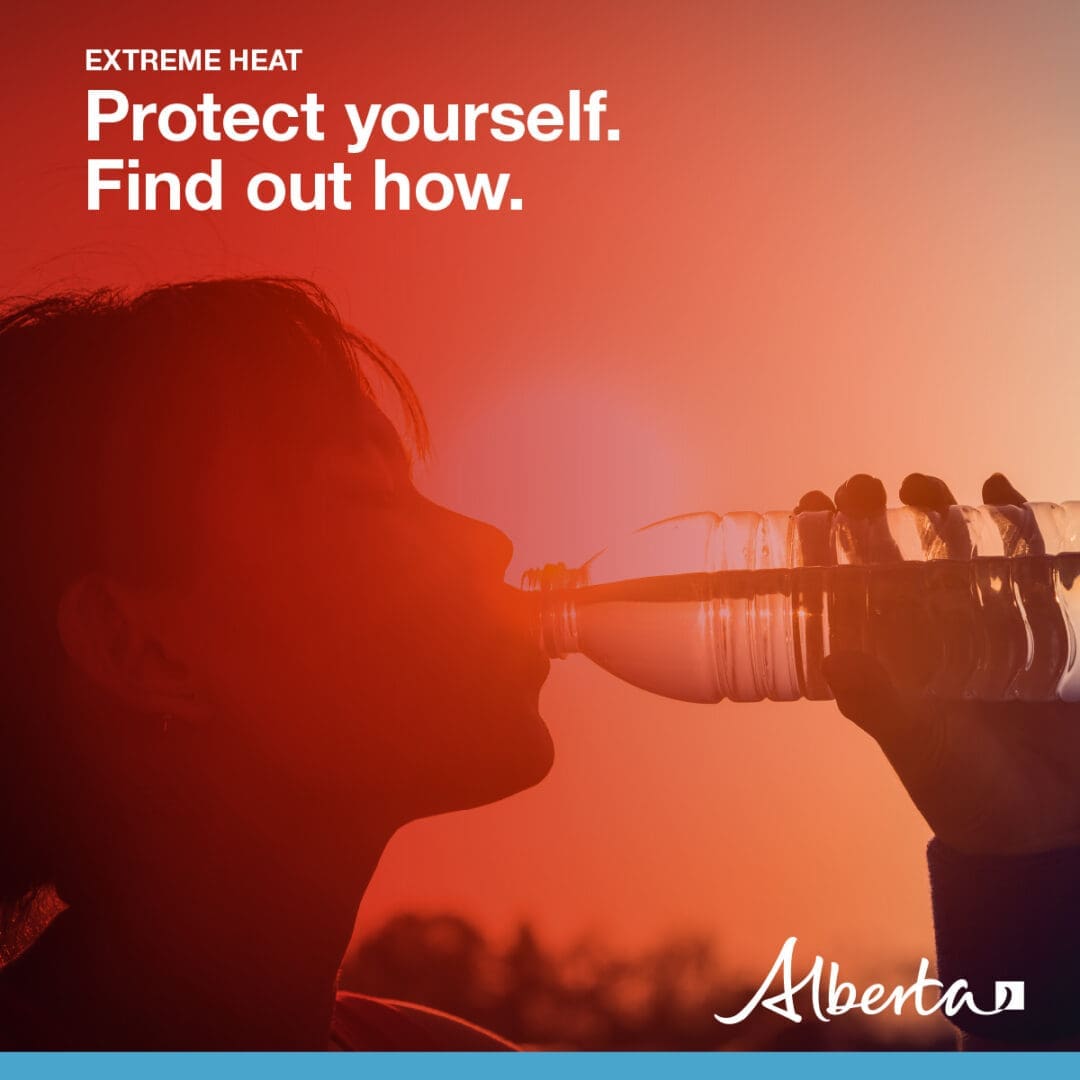EXTREME HEAT PREPAREDNESS

Stay Safe in the Heat!
Why Heat Safety Matters
-
As we age, our bodies don’t adjust to heat as well.
-
Medications or chronic health conditions can make it harder to stay cool.
-
Heat can sneak up on you—even if you’re just sitting or resting.
Before the Heat Hits:
-
Check the forecast regularly.
-
Make a plan to stay cool, especially during the hottest part of the day (11 a.m. – 4 p.m.).
-
Arrange check-ins with family, friends, or neighbours.
During Hot Days:
-
Drink water often – even if you’re not thirsty.
-
Avoid outdoor activities in the heat.
-
Wear light, loose clothing and a wide-brimmed hat.
-
Stay in cool places – turn on a fan or air conditioning, or visit a mall, library, or community centre.
-
Take cool showers or use a damp washcloth on your neck and arms.
-
Avoid alcohol and caffeine – they can dehydrate you.
Watch for Signs of Heat Illness:
Call 911 if someone shows signs of heatstroke:
-
Hot, red, dry skin
-
Dizziness or confusion
-
Nausea or vomiting
-
Rapid heartbeat
-
Fainting
Helpful Resources:
-
Visit: www.alberta.ca/ExtremeHeat
-
Download the WeatherCan app for alerts on heat and air quality
Remember: You don’t have to feel hot to be at risk. Stay cool, stay safe, and check in on others—especially if they live alone.